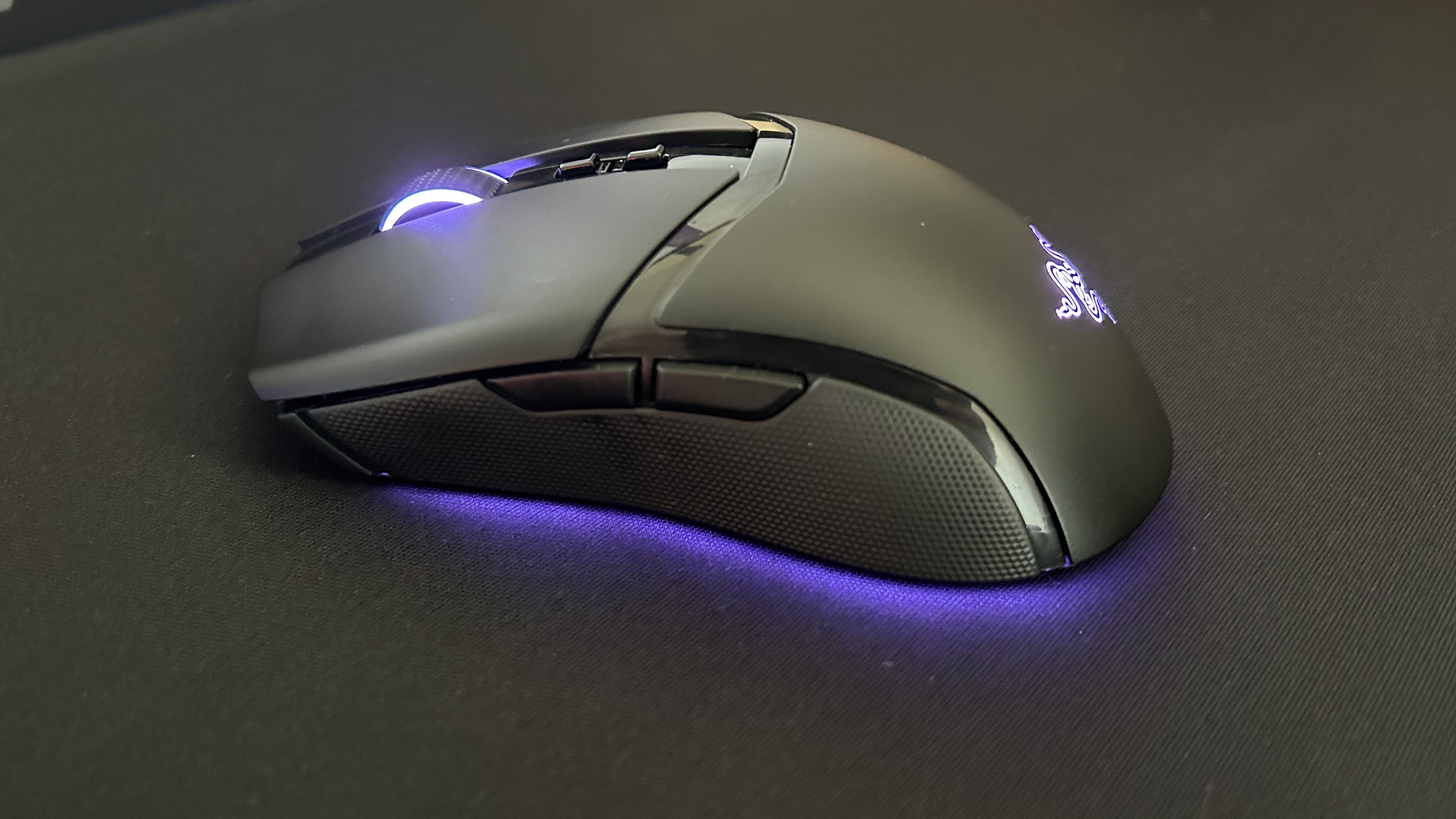
The Razer Cobra Pro is here and it's a mystery. Razer has managed to keep its gaming mouse lines relatively delineated in recent years; you've got your Basilisk for all-round controls, Naga for chunky versatility, Viper for speedy FPS action, and DeathAdder for lightweight movement in a more ergonomic design. The Cobra seems to bridge everything that came before it, sitting at a middling price, weight, and button selection but keeping the top tier components of Razer's top range devices. Surprisingly, it works.
With so many Razer gaming mice designed within in their own strict use-cases, I was confused as to who the Cobra Pro was really for when I first ripped it out the box. After a couple of weeks working and playing, it's clear this is a pointer made for pretty much anyone.
Design
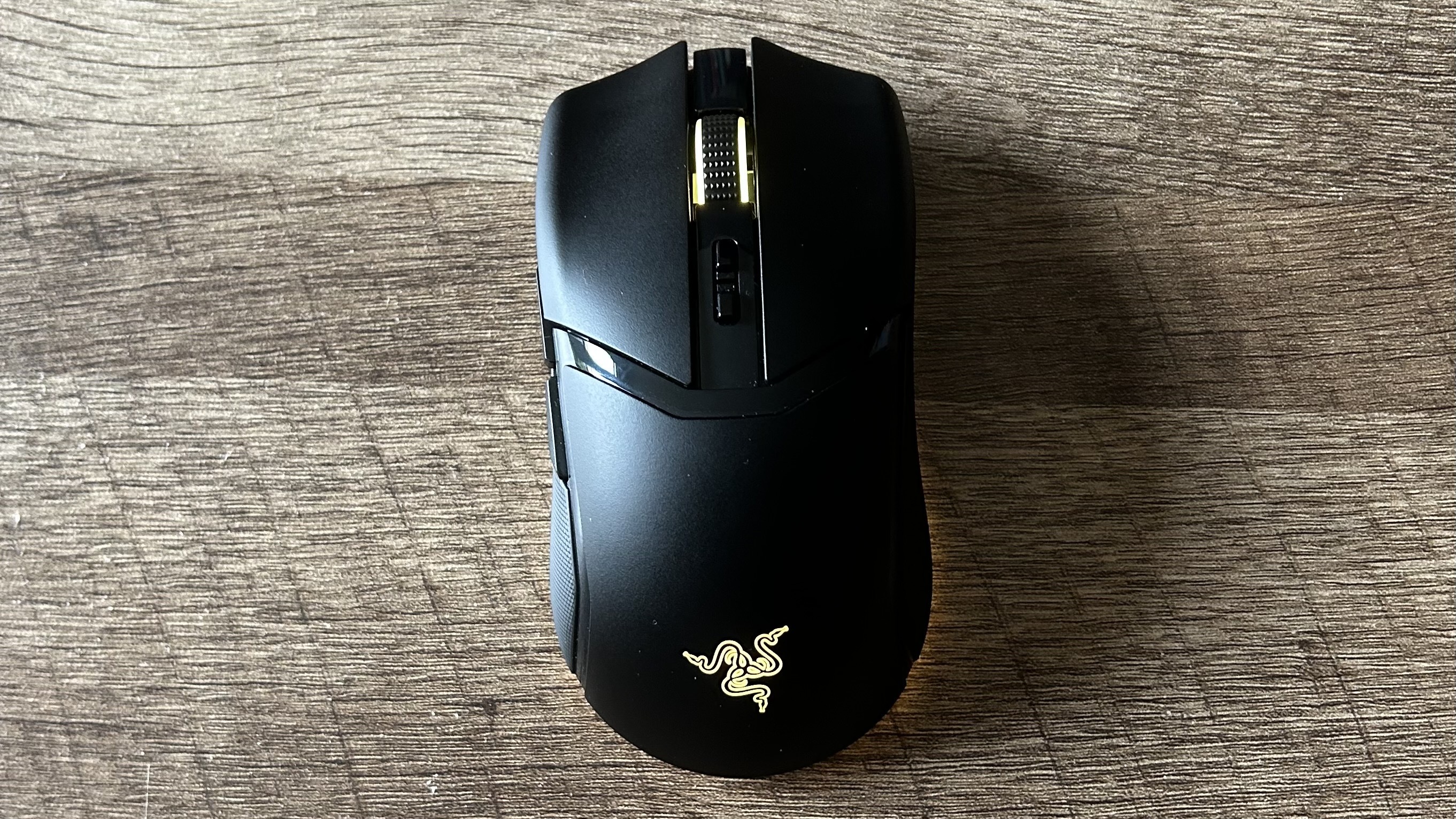
At first glance, the Razer Cobra Pro could pass for a Viper, sitting somewhere in size between the full model and the Mini and modelling its form factor around the same skinny, lightweight build. Throw in some glossy accents, Basilisk V3-esque underglow RGB effects, and two DPI shifter buttons under the scroll wheel and the Cobra's unique personality starts to show through. Of course, you're still getting that high quality smooth matte black body we've all come to know and love from Razer, with a grippy side panel on both left and right flank.
Like the rest of its siblings, the Cobra Pro keeps things subtle in its aesthetic. This is an all-black affair which could pass for a standard office mouse if the two side buttons aren't spotted and that RGB flair is switched off. The shorter body and less pronounced hump means you'll be able to swing this using a palm, claw, or fingertip grip just as comfortably, though the smaller narrow shape might not suit those with larger hands.
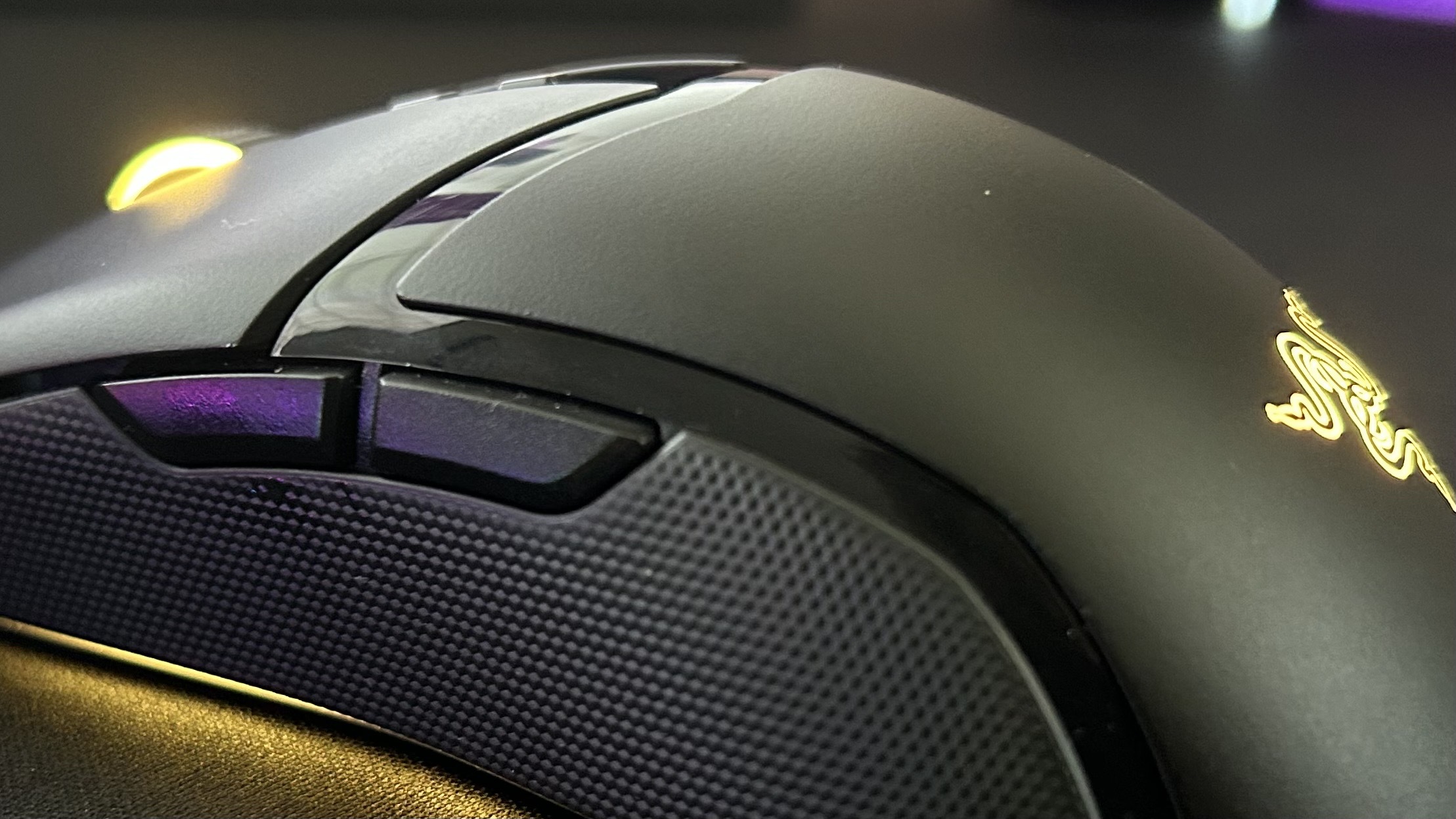
Despite that smaller stature, though, the Cobra Pro certainly isn't the lightest mouse on the market. At 77g it's heavier than the Razer DeathAdder V3 (59g) and the Razer Viper V2 Pro (58g), but rather than feeling sluggish under the hand the thinner body ensures it still feels particularly nimble on the battlefield.
Compared to the Viper V2 Pro's wider body, for example, there's more space under the hand for smaller twitch maneuvers and the rear doesn't force itself into the pad of your palm quite so much. That said, the weight itself does seem to pool at the back of the main body which means there can be some drag when moving vertically, but ultimately you're getting a more grounded feel when swiping horizontally.
Features
The Cobra Pro also stands out from its siblings in its expansive feature set. Not many pointers are doing so yet, but you're getting dual wireless connectivity via both a 2.4GHz dongle and Bluetooth. That's excellent if you're looking to stretch battery life over a work week (Razer advertises 170 hours over a Bluetooth connection and 100 hours on 2.4GHz).
Not only are there eight programmable buttons in total here, including the two DPI shifter buttons, but using the Hypershift option in Synapse you can quickly swap between two different layers of programming as well. That means there's 15 total inputs to customize (a main click must always be maintained), with five onboard profiles to save to as well.
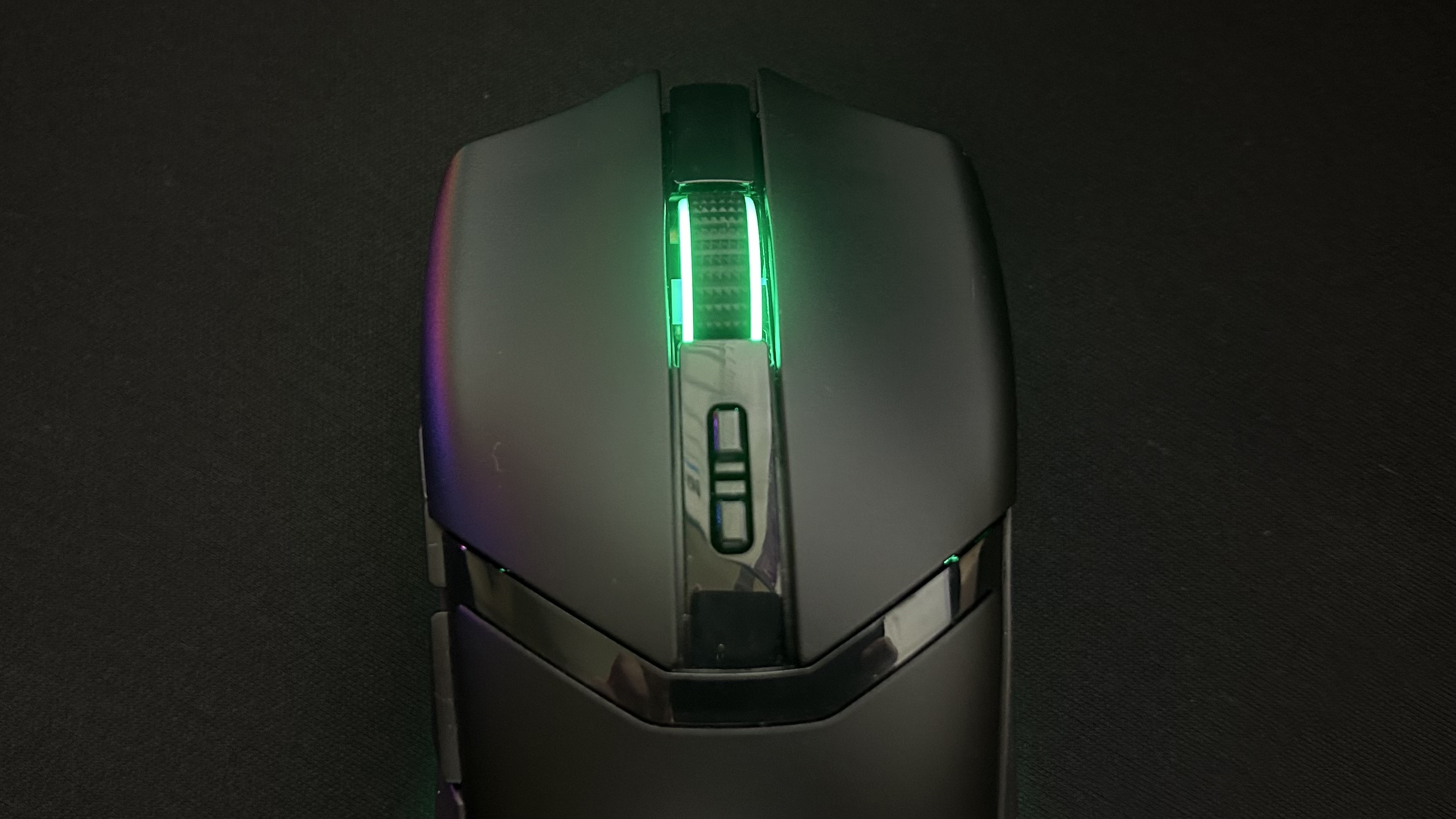
That's not as many options as a chunkier mouse with more dedicated side panel buttons, like the Razer Basilisk V3 Pro, but it's certainly a clever solution to ensuring plenty of functionality in a smaller form factor. Strangely, like most Razer mice, the profile swap button is placed on the bottom of the mouse which isn't particularly helpful if you frequently switch.
Those LEDs are still burning bright as well. The advertized 11 Chroma zones are mostly located around the underglow effect, but also cover the scroll wheel and Razer logo positioned at the bottom. This is particularly vivid lighting, strong enough to bleed onto the surface below to create an impressive floating effect.
Elsewhere, the Razer Cobra Pro is compatible with the Razer Mouse Dock Pro for wireless charging, though this is a separate purchase.
Performance
With the Razer Focus Pro 30K sensor and Gen 3 Optical switches at the helm, the Cobra Pro was always going to feel snappy and responsive under hand. However, everything works with that smaller form factor to make this rodent feel particularly nifty. Of course, you're getting super low latencies via that 2.4GHz connection (with some reduction in speed over Bluetooth), and reliable tracking across every surface I tried (mouse pad, desk top, grainier wood, and a plastic laptop shelf).
Whether I was zipping across Halo Infinite arenas or desperately trying to aim a super shotgun at Doom Eternal Marauders, the Razer Cobra Pro held its cool in accuracy and precision. Even slower games like Shadow of the Tomb Raider benefitted from the shape and design. The two side buttons are easily reachable in a pinch, and the extra room afforded by the smaller design made for a far more comfortable swinging movement as well.
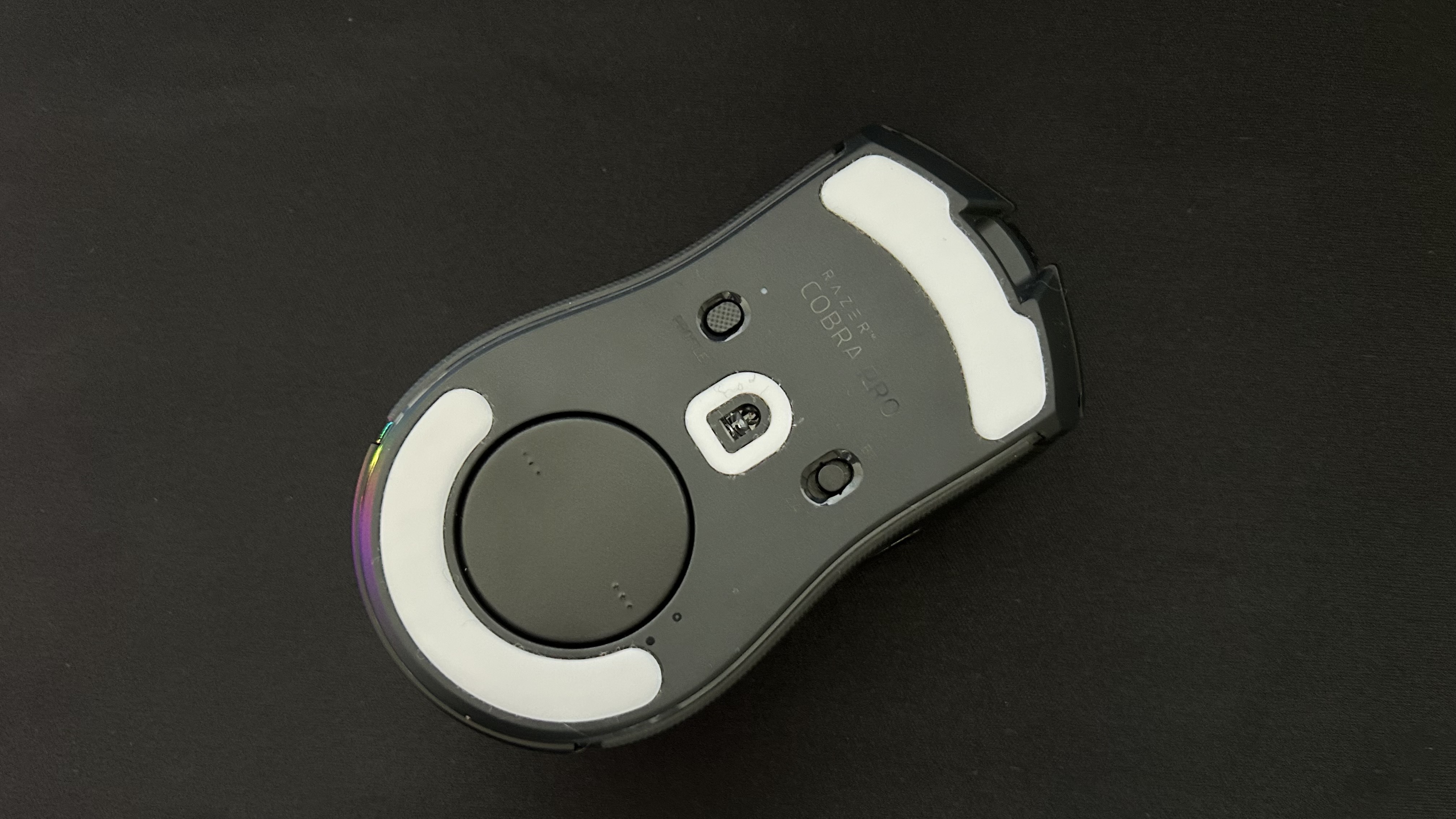
Battery life is solid, but I did find myself having to plug in a little more often than I have with other mice. It seems that the Cobra doesn't quite power down so well when not in use, so rather than the actual battery life being lower it's more of a power handling issue when used in every day life.
The Razer Viper V2 Pro felt like it held up to more action (and more overnights) before needing extra juice, so that advertized 100 hours over 2.4GHz didn't quite match up to my own day to day experience. I was using the Cobra Pro for daily work and a few hours of play most evenings out of the week and had to recharge once during each week. That amounted to around 45 hours of play before needing to plug in.
Should you buy the Razer Cobra Pro?
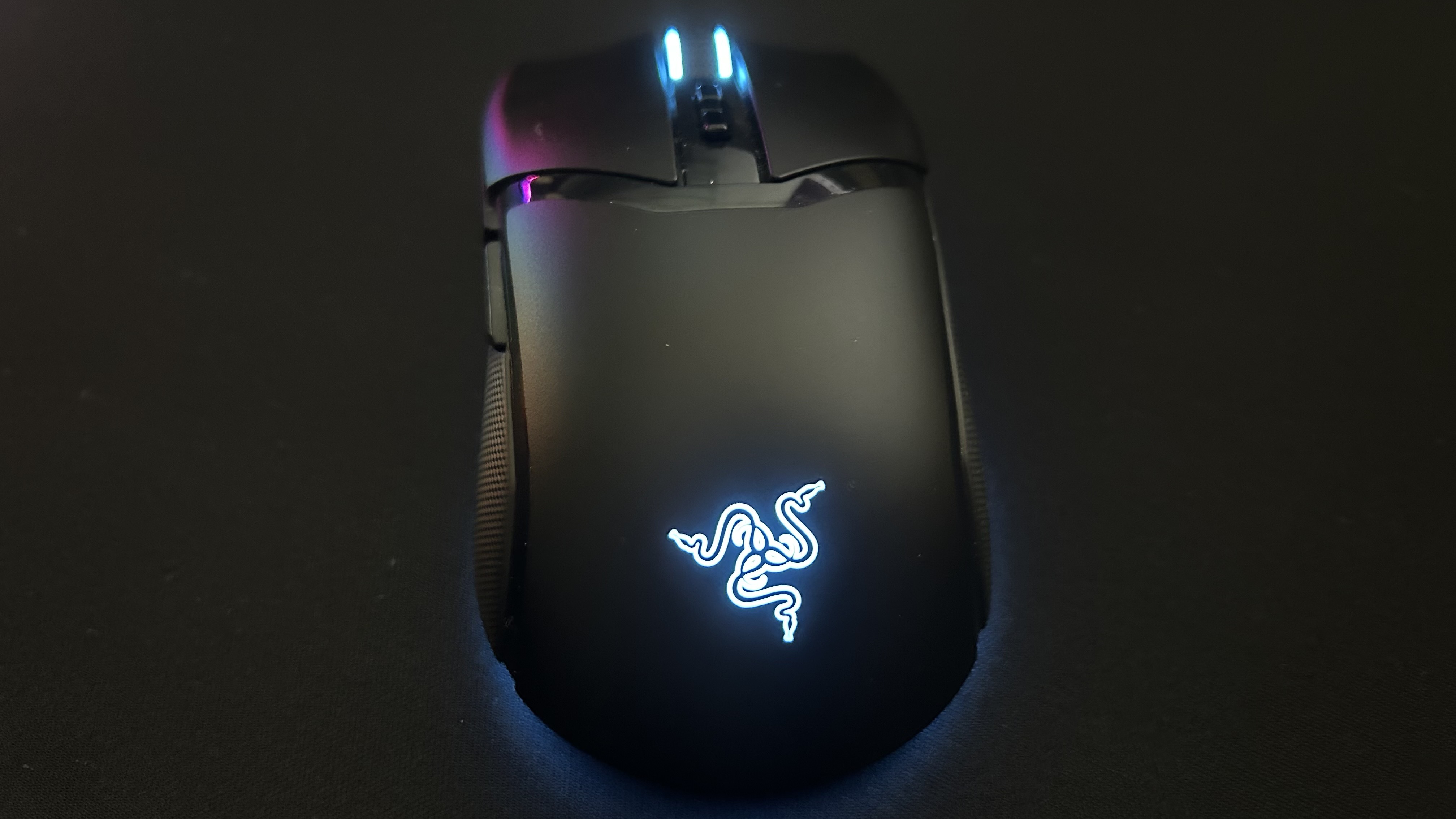
If you've got the budget and you're looking for a jack of all trades gaming mouse, the Razer Cobra Pro is an excellent option. It's not Razer's cheapest pointer, but at $129.99 / £129.99 it's certainly not the most expensive. A true middle of the road option but still packing the brand's latest and greatest components, multi-genre generalists and anyone after a work and play mouse will find excellent value here.
If you are looking to lighten the load a little, the $149.99 / £149.99 Razer Viper V2 Pro still remains our top pick for FPS. You're getting the same specs under the hood, but nearly 20g off the final weight. The wider body will also suit those with larger hands better as well.
Of course, anyone who doesn't want to break past $100 / £100 should be looking at the MSI Clutch GM31 or Razer Basilisk V3 instead. The former leans more into the lightweight FPS-first angle of the Cobra, dropping the sensor quality a little but making up for it in a $69.99 / £59.99 price tag and a wireless dock charger in the box. The latter goes in the other direction for a similar price, packing a larger body and 10 programmable buttons to ensure all player types are covered. This is a particularly comfortable mouse for a range of hand sizes as well, and you're still picking up a 26K sensor and 650 IPS.
How we tested the Razer Cobra Pro
I used the Razer Cobra Pro for all my daily work and play over the course of two weeks. In that time, I primarily used the device at a desk, but also used it on a laptop riser stand separately, playing CS:GO, Halo Infinite, Doom Eternal, Shadow of the Tomb Raider, High on Life, and The Sims 4. During this time I also directly compared usage against the MSI Clutch GM31, Razer Viper V2 Pro, and Razer Basilisk V3. For more information on how we test gaming mice, check out the full GamesRadar+ Hardware Policy.
We're also rounding up all the best wireless gaming mouse options, as well as the best Logitech gaming mouse and best left-handed gaming mouse contenders as well.







